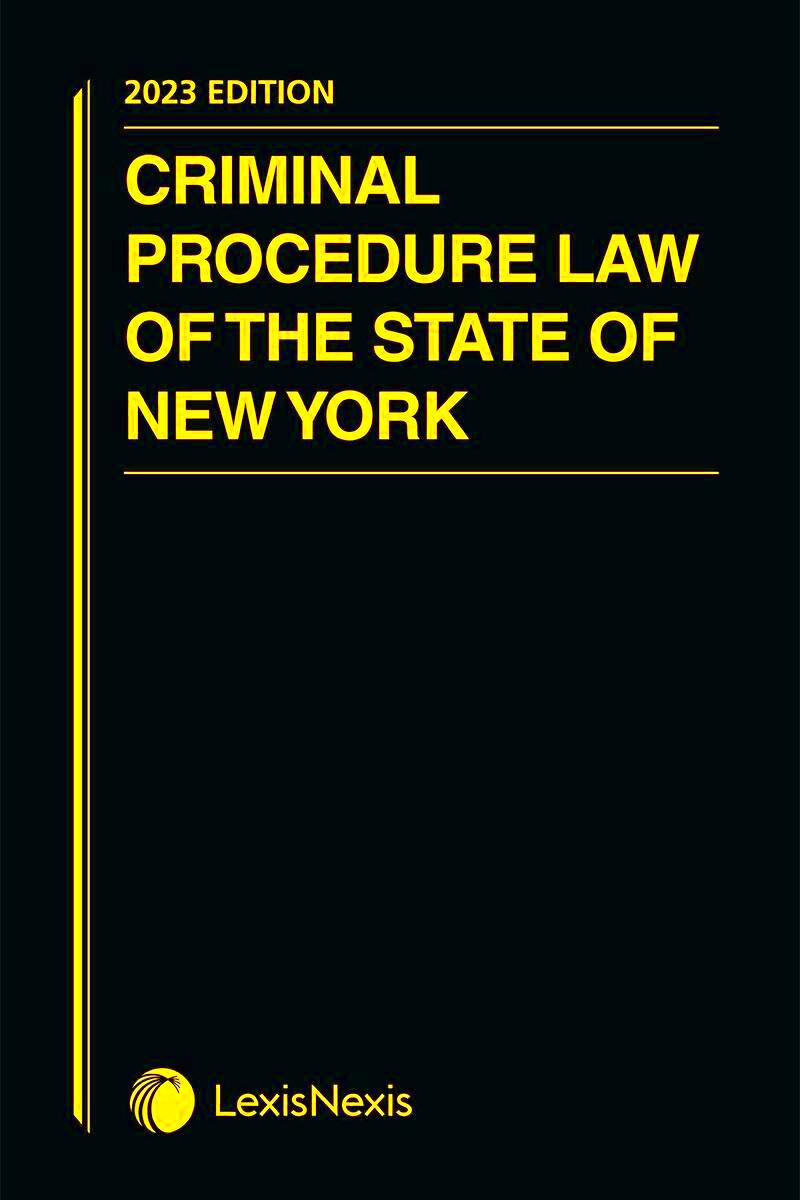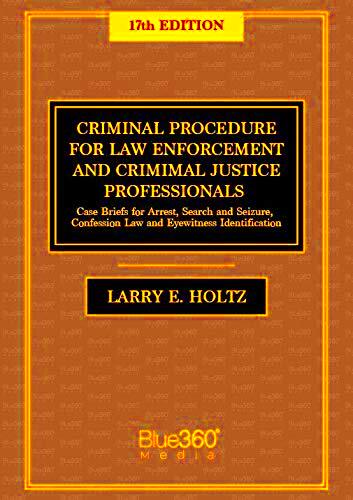Criminal Procedure for Law and Justice Professionals
Criminal procedure is the framework within which the criminal justice system operates. It defines how the law enforcement agencies and courts should function when dealing with criminal cases. Understanding criminal procedure is essential for law and justice professionals, as it ensures that the rights of individuals are upheld while maintaining public safety. This blog post will explore the key concepts, stages, and rights involved in criminal procedures.
Key Concepts in Criminal Procedure

There are several fundamental concepts in criminal procedure that law professionals should be familiar with:
- Due Process: This principle ensures that all legal proceedings are fair and that individuals are treated equally under the law.
- Presumption of Innocence: Every individual is considered innocent until proven guilty in a court of law.
- Right to Counsel: Accused individuals have the right to legal representation, ensuring they receive a fair trial.
- Search and Seizure: Law enforcement must follow specific rules when searching a person or property to collect evidence.
- Double Jeopardy: A person cannot be tried twice for the same crime once acquitted or convicted.
Stages of Criminal Procedure
The criminal procedure consists of several distinct stages, each crucial for the fair administration of justice. Here’s a breakdown of the main stages:
| Stage | Description |
|---|---|
| Investigation | Law enforcement collects evidence and interviews witnesses to establish whether a crime has occurred. |
| Arrest | An individual is taken into custody based on probable cause or an arrest warrant. |
| Initial Appearance | The accused appears before a judge, who informs them of the charges and rights. |
| Preliminary Hearing | A court reviews evidence to determine if there is enough cause to proceed to trial. |
| Indictment | A formal charge is made, usually by a grand jury. |
| Trial | Both parties present their case before a judge or jury to determine guilt or innocence. |
| Sentencing | If convicted, the judge imposes a penalty, which can include imprisonment, fines, or community service. |
| Appeal | The convicted individual may challenge the verdict or sentence in a higher court. |
Each stage of the criminal procedure is designed to protect the rights of individuals while ensuring that justice is served. Understanding these stages helps law professionals navigate the complexities of the legal system effectively.
Rights of the Accused
The rights of the accused are fundamental protections granted to individuals facing criminal charges. These rights ensure that everyone has a fair chance in the judicial process, regardless of the accusations against them. It’s essential for law and justice professionals to understand these rights to uphold justice effectively.
Some of the key rights of the accused include:
- Right to a Fair Trial: Every accused person has the right to a trial that is impartial and conducted fairly.
- Right to Legal Counsel: Individuals can seek the assistance of an attorney, and if they cannot afford one, the state must provide a public defender.
- Right to Remain Silent: Accused persons cannot be forced to testify against themselves, protecting them from self-incrimination.
- Right to be Informed of Charges: The accused must be informed of the nature and cause of the accusations against them.
- Right to Confront Witnesses: Individuals have the right to face their accusers and challenge the evidence presented against them.
These rights are designed to maintain the integrity of the legal system and protect individuals from wrongful convictions. It’s vital for law professionals to advocate for these rights to ensure justice prevails in every case.
Role of Law Enforcement in Criminal Procedure
Law enforcement agencies play a crucial role in the criminal procedure, acting as the first line of defense against crime. Their primary responsibility is to uphold the law and maintain public safety while ensuring that the rights of individuals are respected.
The key functions of law enforcement in criminal procedures include:
- Investigation: Officers gather evidence, interview witnesses, and compile reports to establish a case.
- Arrest: Police have the authority to detain individuals suspected of committing a crime, following legal protocols.
- Preserving Evidence: Law enforcement ensures that evidence is collected and preserved according to established guidelines to avoid contamination.
- Providing Testimony: Officers may be called to testify in court regarding the investigation and their findings.
- Community Engagement: Building trust within the community is vital for effective policing and crime prevention.
Law enforcement must balance their duties while respecting the rights of the accused. By adhering to legal standards and procedures, they contribute significantly to the integrity of the criminal justice system.
Judicial Process in Criminal Cases
The judicial process in criminal cases is the legal framework through which justice is administered. It involves a series of steps that ensure fairness and accountability in the prosecution of criminal offenses. Understanding this process is crucial for law professionals and the general public alike.
Here’s a brief overview of the judicial process in criminal cases:
| Step | Description |
|---|---|
| Filing of Charges | The prosecution files formal charges against the accused based on evidence gathered during the investigation. |
| Arraignment | The accused appears in court to hear the charges and enter a plea of guilty, not guilty, or no contest. |
| Pre-Trial Motions | Both sides may file motions to resolve specific legal issues before the trial begins. |
| Trial | A jury or judge hears the evidence presented by both the prosecution and defense to determine guilt or innocence. |
| Sentencing | If the accused is found guilty, the judge determines an appropriate sentence, which can vary based on the crime. |
| Appeal | The convicted individual may appeal the decision to a higher court if they believe legal errors occurred during the trial. |
This structured approach to the judicial process ensures that each case is handled fairly and that the rights of all parties are respected. By understanding this process, law professionals can navigate the complexities of the legal system more effectively.
Importance of Legal Representation
Legal representation is a cornerstone of the criminal justice system. When facing criminal charges, having a qualified attorney can significantly impact the outcome of a case. Legal professionals not only understand the intricacies of the law but also advocate for the rights of their clients throughout the entire process.
Here are some key reasons why legal representation is essential:
- Expertise: Lawyers have the training and experience to navigate the complexities of criminal law. They can analyze the details of a case and provide sound legal advice.
- Protection of Rights: An attorney ensures that the accused’s rights are upheld during investigations and court proceedings, helping to prevent abuses of power.
- Building a Defense: Legal representatives craft personalized defense strategies tailored to the specific circumstances of each case.
- Negotiating Plea Deals: An attorney can negotiate with prosecutors for favorable plea agreements, which may result in reduced charges or lighter sentences.
- Representation in Court: Having a lawyer present during hearings and trials ensures that the accused is represented effectively, increasing the likelihood of a positive outcome.
In essence, legal representation levels the playing field in a system that can often feel overwhelming. It provides defendants with the necessary tools to defend themselves and ensures that justice is served.
Challenges in Criminal Procedure
Criminal procedure is not without its challenges. Both law enforcement and legal professionals face numerous obstacles in ensuring that justice is served fairly. Understanding these challenges can help in finding solutions and improving the system.
Some common challenges include:
- Complex Laws: The criminal justice system is filled with intricate laws and regulations that can be difficult to navigate.
- Resource Limitations: Many public defenders are overworked and underfunded, leading to insufficient legal representation for those who cannot afford private attorneys.
- Bias and Discrimination: Systemic biases can affect how cases are handled, resulting in unequal treatment of individuals based on race, ethnicity, or socioeconomic status.
- Access to Evidence: Law enforcement may face difficulties in collecting evidence, which can impact the prosecution’s case and the accused’s defense.
- Public Perception: Media coverage and public opinion can influence the judicial process, sometimes creating a presumption of guilt before a trial even begins.
Addressing these challenges requires collaboration among lawmakers, legal professionals, and the community to create a more equitable criminal justice system.
Frequently Asked Questions
Understanding criminal procedure can be complex, so it’s natural to have questions. Here are some frequently asked questions to help clarify common concerns:
| Question | Answer |
|---|---|
| What should I do if I am arrested? | Remain calm, assert your right to remain silent, and ask for an attorney before speaking to law enforcement. |
| How can I find a good lawyer? | Look for a lawyer who specializes in criminal law, has good reviews, and offers a free consultation to discuss your case. |
| What is the difference between a misdemeanor and a felony? | A misdemeanor is a less serious crime, typically punishable by less than one year in jail, while a felony is a more serious crime that can result in longer prison sentences. |
| Can I appeal a conviction? | Yes, you can appeal a conviction if you believe there were legal errors that affected the outcome of your trial. |
| What happens during a plea deal? | A plea deal is an agreement between the prosecution and defense where the accused pleads guilty to a lesser charge in exchange for a lighter sentence. |
These FAQs provide a basic understanding of the criminal procedure and can help individuals navigate their situations more effectively. Always remember that seeking legal advice is crucial when facing criminal charges.
Conclusion
In conclusion, understanding criminal procedure is vital for law and justice professionals as well as for individuals involved in the system. The framework ensures that rights are protected while maintaining public safety and justice. Legal representation plays a crucial role in navigating this complex landscape, ensuring that accused individuals receive fair treatment. Challenges such as resource limitations and systemic biases persist, necessitating ongoing efforts to improve the system. By fostering awareness and education about the key concepts and stages of criminal procedure, we can work towards a more just and equitable legal framework that upholds the principles of due process for all.


